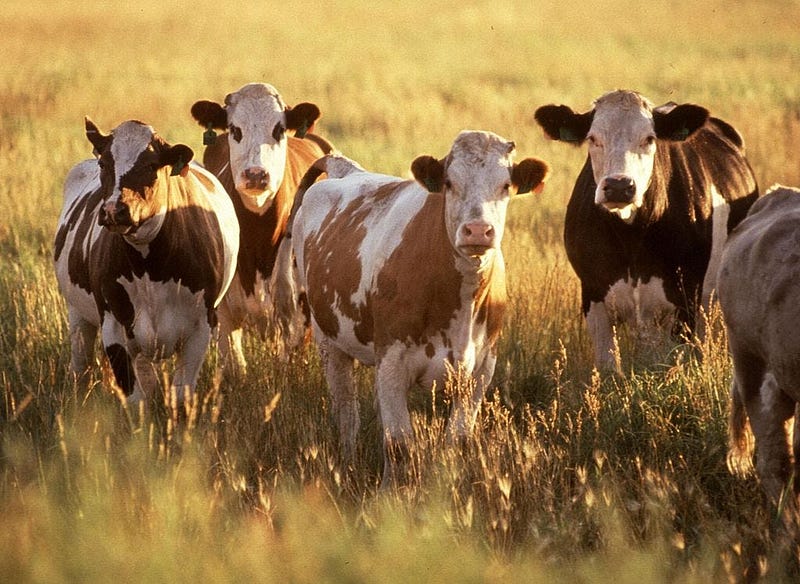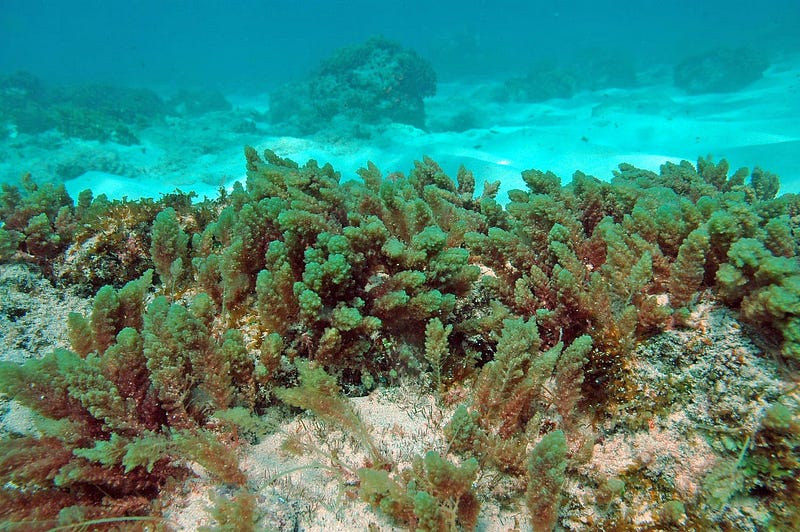Innovative IP Licensing by FutureFeed to Combat Livestock Emissions
Written on
Chapter 1: FutureFeed's Impact on Climate Change
Recently, FutureFeed published its 2023 Industry Report, showcasing advancements made in commercializing a groundbreaking technology designed to reduce emissions within the agricultural sector. This Australian enterprise holds key patents related to Asparagopsis, a type of red seaweed known to inhibit enteric methane production in livestock.
The journey of FutureFeed exemplifies how a climate technology with transformative potential has been successfully transitioned from research to market, largely due to astute patent management and intellectual property (IP) rights strategies. By adopting a licensing framework, FutureFeed not only aims for returns for its investors and original innovators but also fosters the emergence of a new industry centered around methane-reducing feed additives, enabling numerous startups to flourish.
The Challenge of Methane Emissions from Livestock
Ruminant animals, including cattle and sheep, release methane during digestion through enteric fermentation, where gut microbes break down fibrous feed. With an estimated one billion cattle and a similar number of sheep worldwide, this process contributes significantly to greenhouse gas emissions, accounting for approximately 5.7% of global anthropogenic emissions, according to the Intergovernmental Panel on Climate Change.

A Historical Perspective on Seaweed in Animal Feed
Historically, farmers across various cultures have incorporated seaweed into livestock diets, often claiming benefits such as improved health and increased yields of meat and dairy. Recent research has confirmed that certain seaweed species can effectively reduce methane emissions when included in ruminant feed. This led to the establishment of FutureFeed, in collaboration with Australia’s CSIRO and partners like James Cook University and Meat & Livestock Australia, to investigate these seaweed varieties further.
Asparagopsis species, particularly one found in Australian waters, contain a bioactive compound called bromoform that hinders methane formation in the digestive system. Trials conducted in both Australia and the USA demonstrated that adding Asparagopsis to cattle feed could potentially lower methane emissions by up to 80%, depending on dosage. However, scaling up production to meet global demand remains a challenge.
Chapter 2: Licensing for Growth and Innovation
In August 2020, FutureFeed transitioned into a private entity with an investment of A$13 million (approximately US$9.34 million) from CSIRO and four founding investors, including Woolworths and GrainCorp. The goal was to bring methane-reducing feed additives to market by establishing a comprehensive value chain encompassing seaweed cultivation, processing, and animal feed production.
Instead of operating as a direct supplier, FutureFeed opted to function as a licensor, granting access to its foundational patents and expertise to third parties. This approach enables growers worldwide to cultivate high-quality seaweed, while also fostering trust and credibility within the emerging industry.
FutureFeed's Intellectual Property Strategy
According to its industry report, FutureFeed claims to possess global IP rights for using Asparagopsis as a feed ingredient aimed at methane reduction. The company holds several granted patents and applications related to both methane reduction and productivity enhancements in livestock.
An exploration of global patent databases reveals that FutureFeed owns two primary patent families:
- Novel Composition: Pertaining to processes that help reduce total gas and methane production in ruminants.
- Novel Compositions for Reducing Methane Production: Focused on processes that utilize manufactured bromoform and stabilizing agents to lower gas emissions and improve livestock growth.
Beyond these, FutureFeed may also be managing other patents assigned to various entities.
Current Licensees and Their Contributions
As of now, FutureFeed has established nine licensing agreements with various companies engaged in seaweed cultivation and animal feed production. The report highlights notable innovations from some licensees:
- Blue Ocean Barns (USA, Mexico): Developing patented growing technologies for optimal seaweed compositions.
- CH4 Global (Australia, New Zealand): Utilizing patented methods for efficient seaweed cultivation and processing.
- Sea Forest (Tasmania): Innovating extraction methods for bromoform from seaweed.
- Symbrosia (USA): Awarded a plant patent for a resilient strain of Asparagopsis.

Creating a Sustainable Industry Around IP
FutureFeed's report suggests that if just 10% of global cattle and sheep producers adopt Asparagopsis feed supplements, the resultant climate benefits could equate to removing 100 million cars from the roads. Additionally, increased livestock productivity could provide food for an estimated 23 million people.
While the technology is still in its early stages, FutureFeed and its collaborators continue to evaluate the effectiveness and safety of these seaweed supplements. As highlighted by FutureFeed's CEO, Alex Baker, their licensing framework not only promotes new business ventures but also stimulates an entire value chain rooted in academic research.
“Our licensees are cultivating and processing seaweed locally, thereby creating new industries and job opportunities,” Baker states. “Together, we are building a sustainable, nature-based industry.”
This article is part of AgriFoodIP, a newsletter focused on the value creation of intellectual property in the food and agriculture sectors. For subscription details, click here. Check out last week’s edition for more insights.